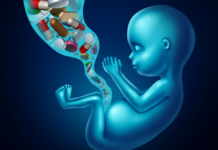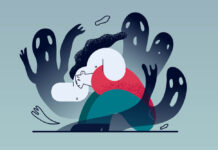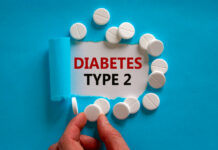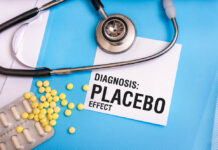Antidepressants in Pregnancy: Risks to the Fetus and Long-term Health of the Child
The research literature reveals that antidepressant use in pregnancy poses considerable risks to the fetus and the long-term health of the child. These risks include preterm birth, birth defects, abnormal brain development, and behavioral abnormalities in early childhood.
Researchers Criticize Putting Preschoolers on Stimulant Drugs
Against guideline recommendations, preschoolers were often prescribed stimulants without even having the chance to try family behavioral therapy.
Not Even the Unborn Are Safe from Psychiatric Harm
Medical organizations and the media dismiss the experts and the large body of research telling of fetal harm from exposure to SSRIs during pregnancy.
Antidepressant Withdrawal Symptoms Linked to Life-Altering Consequences, New Study Shows
A new study reveals that withdrawal symptoms from antidepressants can last years, disrupting lives and relationships.
Stuart Shipko – SSRI Withdrawal: Shooting the Odds
We interview Dr. Stuart Shipko, a psychiatrist and author who has a particular interest in the side effects and withdrawal effects of SSRI antidepressants and the need for informed consent when prescribing.
Exploding Myths About Schizophrenia: An Interview with Courtenay Harding
The Vermont Longitudinal Study, led by Courtenay Harding, belied conventional beliefs about schizophrenia by showing remarkably good outcomes for patients discharged in the 1950s and '60s.
Exposure to Antidepressants in the Womb Makes for Sad, Scared Adolescents
SSRI exposure in utero “alters the offspring’s brain structure,” causing a hyperactive amygdala and fear circuits, leading to anxiety and depression.
Researchers: “We Do Not Suggest” Antipsychotics for Depression
Augmenting with antipsychotics was no better at reducing suicide than adding antidepressants, but led to increased risk of death from other causes.
Post-Acute Withdrawal Syndrome (PAWS): Why Don’t We Know More About It?
Persistent antidepressant withdrawal is a debilitating experience, but little research exists about its prevalence and treatment.
Do Antidepressants Work? A People’s Review of the Evidence
After a meta-analysis of RCTs of antidepressants was published in Lancet, psychiatry stated that it proved that "antidepressants" work. However, effectiveness studies of real-world patients reveal the opposite: the medications increase the likelihood that patients will become chronically depressed, and disabled by the disorder.
Antidepressant Withdrawal Is Common and Debilitating
Those using antidepressants long-term were more likely to experience withdrawal and to have severe withdrawal symptoms.
Antidepressant Trials Last Eight Weeks, So Why Do We Take Them for Years?
The studies are of short duration and are riddled with methodological issues like unblinding and failure to assess withdrawal.
Psychiatric Drugs “A Crude Form of Chemical Restraint”
Mental health nursing has a key role to play in helping people discontinue the drugs, writes Timothy Wand.
Half of Those Who Take Antidepressants Are Labeled “Treatment Resistant”
Millions of people are trying multiple antidepressant drugs without success, and psychiatry labels them “treatment resistant.”
Elderly Patients Who Stop Antipsychotics Have Better Outcomes
Older adults are often prescribed antipsychotics off-label for behavioral control in the hospital. But there’s no evidence for antipsychotics helping, and a great deal of evidence of harm.
Animal Study: SSRI Neurotoxic in Pregnancy
Researchers: Fetal exposure to vilazodone hampers neurodevelopment and leads to "long-lasting neurodevelopmental impairments."
Randomized Controlled Trial Confirms That Antipsychotics Damage the Brain
A new study published in JAMA Psychiatry connects antipsychotics with damage to the brain in multiple areas.
Deadly Prescriptions: New Study Links Antipsychotics to Life-Threatening Risks in Dementia Patients
With pharmaceutical companies pushing antipsychotics for off-label use, dementia patients are being put at risk for devastating health consequences. Research suggests safer alternatives exist—but why aren’t they being prioritized?
Lithium Doubles Risk of Thyroid and Kidney Dysfunction
Serum lithium levels lower than those considered therapeutic still conveyed increased risk.
Suicide in the Age of Prozac
During the past twenty years, the American Foundation for Suicide Prevention and American psychiatry have adopted a "medicalized" approach to preventing suicide, claiming that antidepressants are protective against suicide. Yet, the suicide rate in the United States has increased 30% since 2000, a time of rising usage of antidepressants. A review of studies of the effects of mental health treatment and antidepressants on suicide reveals why this medicalized approach has not only failed, but pushed suicide rates higher.
New Study Links Antidepressants to Increased Risk of Diabetes
Using genetic analysis, a new study finds that antidepressants—not depression—are responsible for a significant rise in type 2 diabetes risk.
More Evidence That Antidepressants Work Via Placebo Effect
Antidepressants were more effective for depressed patients who were more “optimistic.” Still, only 30% responded to SSRIs.
Antidepressants in Dementia Patients Increase Risk of Death and Fractures
A large-scale study reveals that antidepressant use is linked to faster cognitive decline in dementia patients, raising concerns about their widespread prescription.
Are Antidepressants Weakening Women’s Bones?
A study spanning two decades finds that antidepressant use is associated with a 44% increase in osteoporosis risk and a 62% higher chance of fractures.
Benzodiazepines Linked to Suicide, Study Finds
A new study finds that benzodiazepines—alprazolam (Xanax), lorazepam (Ativan), and diazepam (Valium)—are associated with an increased risk of suicidal events.

































